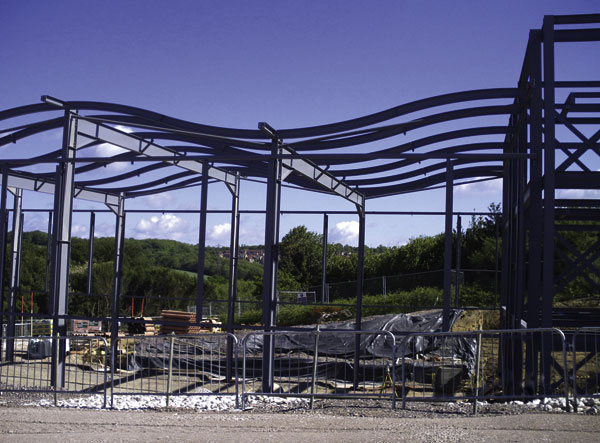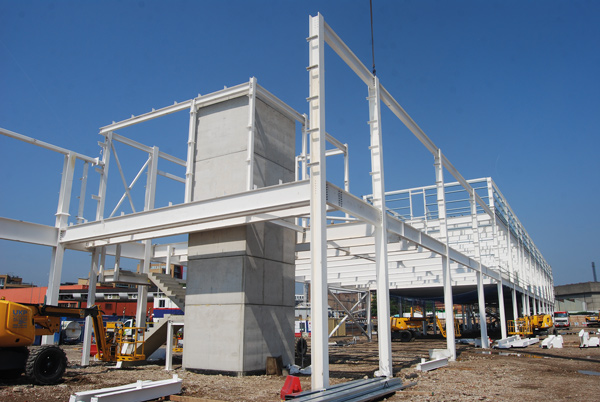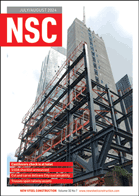Projects and Features
Charter brings sustainability to the fore
With clients increasingly looking to employ contractors that adopt sustainable practices, the newly launched charter for the steel construction industry is likely to get an enthusiastic reception.
The Steel Construction Sustainability Charter will be launched at next month’s Steel Construction Conference and Exhibition. It will mark the implementation of an important element of the sector sustainability strategy of three years ago, that of engaging the supply chain in adopting more sustainable behaviour.
Members of the British Constructional Steelwork Association and the Register of Qualified Steelwork Contractors can apply now to sign up to the charter.
The initiative will offer steelwork contractors a way of demonstrating that they are addressing sustainability, at a time when clients are becoming increasingly aware of the issues and seeking to employ firms which can show that they are monitoring their progress and making improvements in this area.
The client’s view will be the subject of a keynote address to the conference by Richard Elliott of British Land.
In the words of the introduction to the charter, the aim of sustainability is “to improve the quality of life for everyone, now and for generations to come”.
The charter stresses the need to regard environmental, economic and social issues equally, and companies signing up to the charter will be required to make a formal declaration that they will operate their business in accordance with the charter’s objectives.
Charter companies will undertake to run their businesses on sustainable lines, demonstrate social responsibility, and share their knowledge of sustainability with others.
After signing the charter, companies will complete a sustainability application form and undergo an audit, carried out by RQSC auditors either as part of the company’s routine registration audit or separately. The company must demonstrate that it has at least six of a list of 12 management systems in place (see below). Following a successful audit companies will be able to use the new Sustainable Steel Construction logo.
Companies with all 12 systems in place will qualify for a ‘gold’ rating and those with nine a ‘silver’ rating.
The company must also agree to provide annual returns for certain data to monitor progress towards targets for the future, so that being a charter company carries with it responsibility for continuous improvement.
BCSA technical consultant Roger Pope, a member of the Steel Construction Sector Sustainability Committee and one of the main architects of the charter, said: “The charter is intended to show that contractors are taking an interest in sustainability and have started moving in the right direction. The BCSA will then give them recognition.”
He added that the general targets will be supplemented as key performance indicators are developed to aid future improvement: “As contractors are audited we will be able to pool best practice,” he said. “We want to show that it’s practical to assemble this sort of data and monitor progress.”
Launch of the charter comes at an opportune moment. Dr Pope said: “Since the sector strategy was published, clients have become much more interested in sustainability. Two years ago steelwork contractors were asking, does it matter much? Now clients are coming to us and asking what we’re doing.”
During the sustainability audit a charter company must demonstrate it has at least half the following 12 management systems in place:
- A published sustainability policy (mandatory)
- Monitoring of progress towards sustainability using specific management targets
- A programme of involvement with their local community on social issues
- An accredited Health & Safety management system to OHSAS 18001
- Investors in People accreditation
- A published equal opportunities policy
- A published ethical trading policy
- An accredited environmental management system to BS EN ISO 14001
- Use of environmental impact assessment for process improvement
- A policy to manage energy and vehicle fuel use in the business
- A policy to question whether suppliers have published sustainability policies
- An accredited quality management system to BS EN ISO 9001














